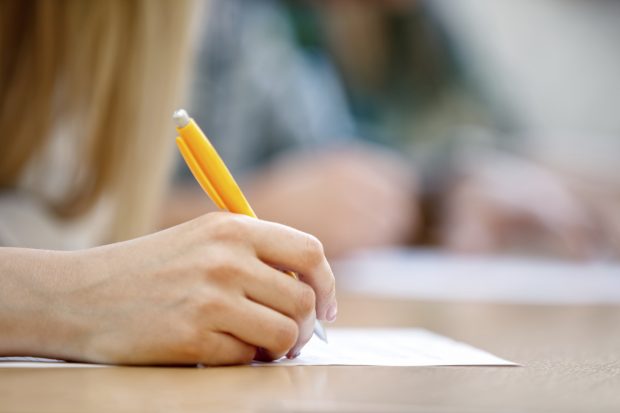
Today’s Education in the media blog looks at the work the government is doing to improve mental health support for young people, and the importance of Key Stage 2 (KS2) SATs, which start this week.
Young People Mental Health
Today, Monday, 14 May, the NSPCC has released figures on the number of referrals by schools for children’s mental health treatment. They show an increase in referrals since 2014.
The Government wants to make sure all children and young people get the correct mental health support. That’s why we have pledged £1.7 billion to help promote, protect and improve children and young people’s mental health and wellbeing, including £300 million to provide better support linked to schools.
Last year we announced new mental health support teams to increase the support available to pupils with emerging mental health problems.
This story has been covered by the Independent, I , Daily Mirror , Huffington Post, Telegraph and Times, and the TES.
A Government spokesperson said:
Making sure children and young people get the right support when they need it is imperative. That is why are allocating £300 million, over and above the additional £1.4bn being invested in specialist services, to provide more support linked to schools. This includes new mental health support teams to provide trained mental health workers to work closely with schools –including primary schools - to provide quicker support to children.
We know we need to do more which is why we have extended our schools and NHS link pilot to deliver training in 20 more areas of the country this year. This will improve links between up to 1,200 schools and their local specialist mental health service.
Grammar Schools
Last week we announced a £50million fund to help existing selective schools expand on the grounds that they set out how they will make sure they benefit disadvantaged pupils and work with other schools in their area. On Saturday, 12 May, the Sun ran a leader column in support of the plans highlighting the benefits selective schools can provide.
The column says the majority of British people “back grammar schools and would happily send their kids to one”. It also notes that most people believe they are a positive force for social mobility. The leader finished by stating that The Sun supported more grammar schools as long as they support the intake of children from low-income families.
We know selective schools are popular with parents. Where they are available, selective schools are around 48 per cent more popular than non-selective schools.
The Selective Schools Expansion Fund will help existing selective and partially selective schools expand their premises and create more places. This gives parents greater choice and give more children, from all backgrounds access to a better school place. All applications must show how they will widen access for disadvantaged pupils and will work with other local schools to raise standards for all pupils.
We know though that selective schools are already doing more to increase access for pupils from disadvantaged backgrounds though, with around 60 per cent already taking steps to prioritise these children in their admissions.
Education Secretary Damian Hinds said:
Children only get one chance at an education and they deserve the best, wherever they live and whatever their background. Standards are rising in our schools and we’ve created hundreds of thousands of new places since 2010 but we want to make sure every family can access a good school.
By creating new schools where they are needed most and helping all great schools to grow, we can give parents greater choice in looking at schools that are right for their family – and give children of all backgrounds access to a world-class education.
SATs
Today children up and down the country will begin taking their key stage 2 tests.
The tests, commonly referred to as SATs, come at the end of pupils’ primary school education and are an essential tool in ensuring schools are providing a suitable education to children by showing us their progress from key stage 1.
The assessments are used primarily to measure schools’ effectiveness and have no long term ramifications for pupils.
Despite this, several organisations are concerned about the impact that the tests will have on pupils’ mental health and the stress they may cause.
The department is absolutely clear that while assessment is a crucial part of any pupils’ education, schools should not put undue pressure on pupils, and this should not be at the expense of their wellbeing. We know most schools are able to strike this balance.
The Daily Mirror, Metro and the TES have all covered the start of the key stage 2 tests this week, picking up on the concerns raised by organisations such as Let Our Kids be Kids and More than a Score.
The department wishes everyone taking their SATs this week the very best.
Schools Standards Minister Nick Gibb said:
The key stage 2 tests play a vital role in ensuring that children have been taught, and have acquired a sound knowledge of, the fundamentals of reading, writing and mathematics.
Thanks to our reforms and the hard work of teachers, education standards are rising in our schools, with 1.9 million more pupils in good or outstanding schools than in 2010. We trust schools not to put undue pressure on pupils when administering these assessments, and certainly not at the expense of their wellbeing.
I wish pupils all the very best as they prepare to sit the key stage 2 tests and I look forward to celebrating their success in the summer.
Follow us on Twitter and don't forget to sign up for email alerts.